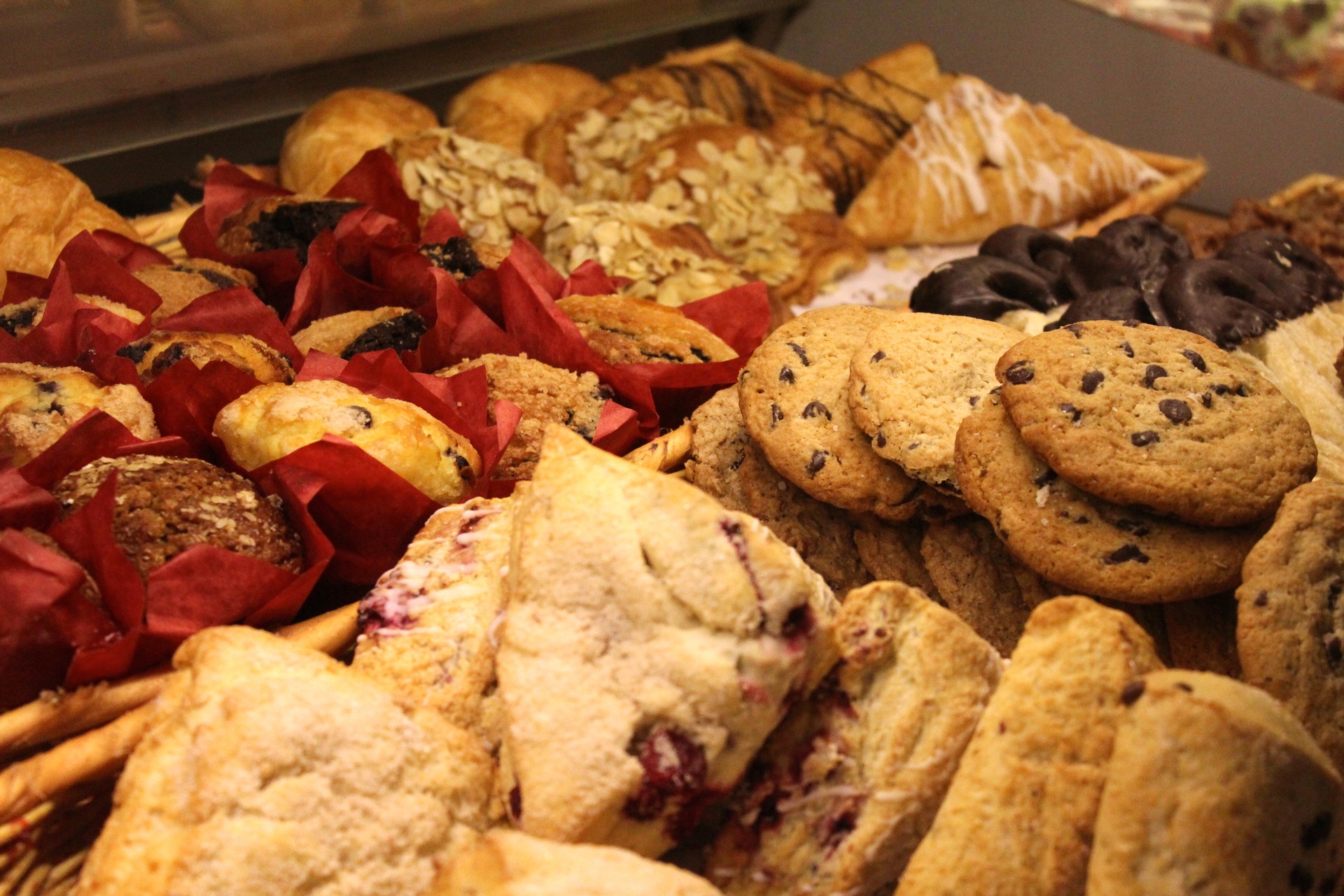5 Reasons Why You’re Not Making Gains In The Gym
Having trouble cultivating mass and your lifts are not progressing?
You’re not alone. Despite best-laid plans and plenty of effort, most guys struggle in the weight room at some point. The following are five reasons why you may be lagging and having a hard time trying to change your body:
Your Diet is Screwed Up
Step one to a good diet is actually paying attention to what you’re putting in your body. If you’re not tracking your food intake, you probably don’t have a clue. That which is measured improves.
I’ve covered diet and energy balance more thoroughly in the past, but to put it simply, if you want to gain muscle you need to eat more calories than you burn. The exact opposite is true if you want to lose fat. It’s shocking how many people don’t understand this most basic concept of diet.
Tracking your food intake is not a complicated process. You can keep a paper journal or even better use an app like MyFitnessPal to track intake. I use the later because it is so easy to use, search for your food, be realistic about the serving size you ate and add it to your journal for the day. It’s super easy to use and a very convenient way to track your food intake.
If you eat similar foods day in and day out, you may only need to track your calories for a few weeks. After that, you’ll have a good idea of how much you’re eating and can adjust from there.
The next step is thinking about macros. A very simple rule for bodybuilding is 1 gram of protein per pound of body weight (2.2 g/kg of BW) every day. When you start tracking your food intake you might be surprised to see just how little protein you’re eating every day. Don’t be surprised if you’re eating half the recommended intake each day.
Once you have your macro targets, you have to balance your calories in relation to them. For me, eating 200g of protein each day makes coming in at my calorie target of 2200 calories difficult. With a lot of my calories coming from protein there isn’t a whole lot of room left for fun stuff like cheese, sauces, bread, etc… Tracking your diet allows you to learn how to hit your protein target without ballooning.
Lastly, a lot of guys get caught up in dieting strategies. Paleo, low carb, Atkins, intermittent fasting, etc… Provided that you are eating enough protein, fruits and vegetables the best diet is the one that fits your lifestyle. It’s important to note that most of these diet strategies are simply tricky ways to get you to eat less and actually think about what you’re eating.
I’ve used intermittent fasting in the past and loved it. I hated low carb. For the most part, though, I simply watch what I eat and have had great results simply doing that.
You’re Not Keeping a Journal or Training Log
That which is measured, improves … That which is measured and reported improves exponentially. – Karl Pearson.
How do you know if you’re making progress in the gym if you’re not keeping a record of what you’re doing there?
The fact of the matter is that you don’t have clue unless you’re keeping a training journal.
Keeping a training journal or log is a necessity if you are serious about making progress in the gym and realizing the gains you want.
By keeping a training journal to track your workouts you can know exactly where you are and what you need to do to improve. You can see which lifts are stagnant and which lifts are improving at a glance. I use a log to structure my workout. If I lifted X weight for Y reps and Z sets the last workout, I’m going to shoot for X+5lb, or Y+1 or Z+1 this time around. Without tracking, you’re just kind of bullshitting it. You can’t tell me you remember how much weight, how many reps and how many sets you did for every exercise during your workout last week.
Will you make progress in the weight room every workout by keeping a log? Of course not, don’t be silly. Will keeping a log better equip you to make progress as your body allows? Absolutely. A journal keeps you accountable to yourself, it’s also a great motivational tool.
You’re Inconsistent
Success isn’t always about greatness. It’s about consistency. Consistent hard work leads to success. Greatness will come. – Dwayne Johnson
Consistency is key to progress in every aspect of life, it is especially true when it comes to fitness. A good diet can be ruined for the week in a 15-minute binge and a good physique by a workout skipped here or there.

So many guys obsess about finding the perfect diet and workout program while ignoring the most important factor, consistency. In fact, consistency is so important that even if you had a crappy program and a poorly planned diet you’d still make more progress than a guy who is dialed in but inconsistent.
To see gains, fitness has to become a part of your lifestyle and part of who you are. After a long, hard day jumping on my bike trainer or walking out to my garage gym are the last things I want to do, but getting in shape isn’t about wants, it’s about needs. I have to workout, the way I have to eat or sleep. If you workout when you “feel like it” you will fail.
You Don’t Understand Progressive Overload
If you want to get bigger and stronger you have to lift heavier and for more volume over time. It is truly incredible how few people get this.
Before I built my home gym I used to belong to a club and it blew my mind how many guys would come in on the same days each week and lift the same amount of weight for the same number of sets and reps month after month. It would also blow my mind when they’d complain about not getting bigger.
This is really simple stuff. If you lift the same weights every time you workout you won’t grow.
This principle of lifting more weight over time is called progressive overload and it is the most important single concept in bodybuilding.
Progressive overload requires tracking, which we covered above, it also helps to be on a good program like Starting Strength of Lyle McDonald’s Generic Bulking program.
You’re Training Too Hard

If you train to failure on a regular basis you’re on the quick road to injury and burnout.
You don’t need to train to failure to make progress in the weight room. In fact, training to failure too often can actually halt your progress by making you more susceptible to plateauing.
I often see guys try to use training to failure as a shortcut to strength and size gains. Like any skill, strength requires practice and time to develop. When you’re training you are training your nervous system along with your muscles. Your nervous system adapts best to training that is progressively more difficult in a consistent manner, do too much and you will impair recovery.
This is where listening to your body comes into play. It’s good practice to go for a PR every once and awhile, shooting for several each week, however, will destroy you. Listen to your body and leave a little in the tank. When working with heavy weight, I usually shoot to terminate my set when I have a good rep or two left in me. On really heavy lifts like deadlift, I might opt for a 1×5 or 2×3 set/rep scheme to minimize the negative impact on CNS. On lighter lifts like dumbbell bench, I can comfortably take on a 4×12 set/rep scheme.
Final Word
If you’re lagging behind at the gym or in the mirror, you have to address what’s keeping you from your goals. Until you do, you will fail.






